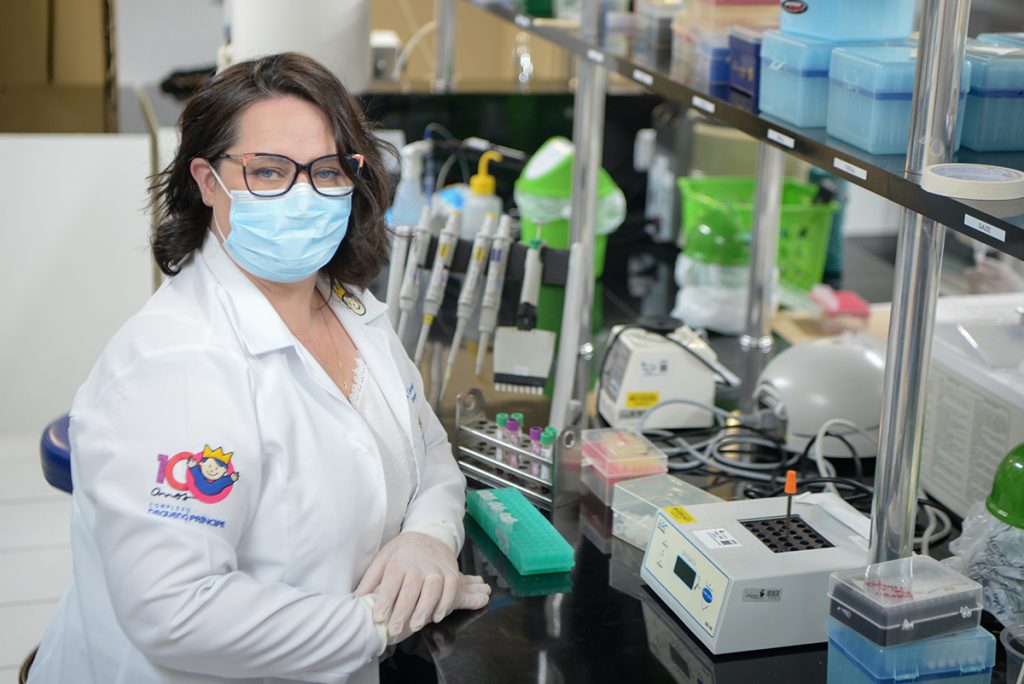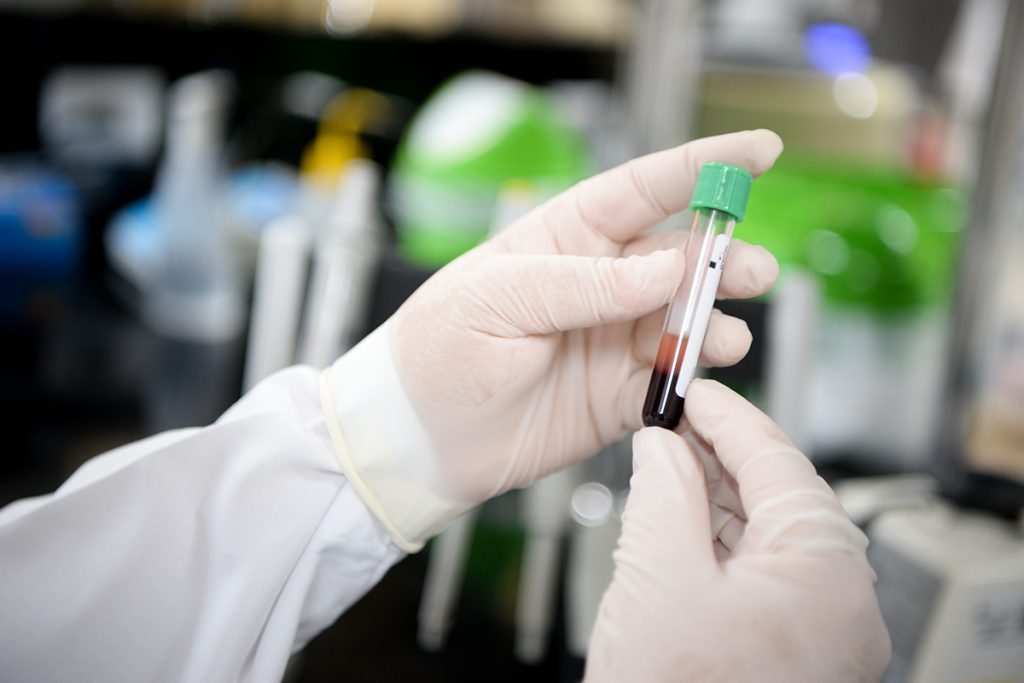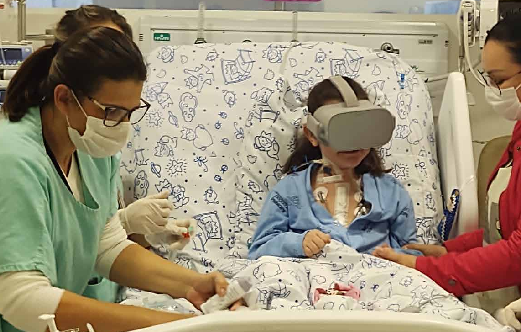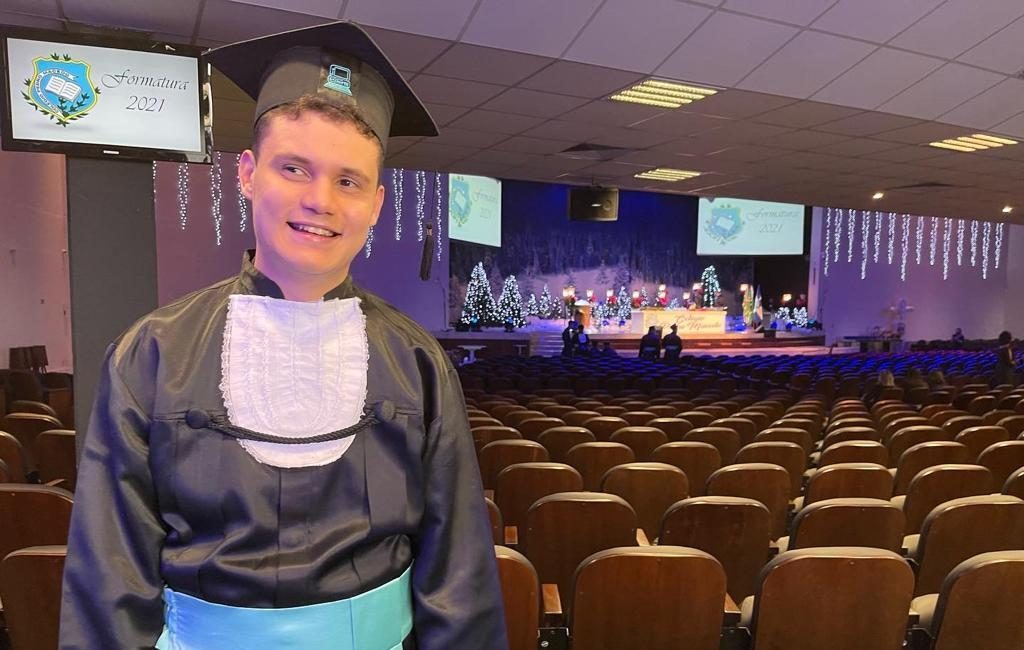After hospitalization for COVID-19, brothers discover rare disease
Children participated in worldwide research that investigates genetic aspects linked to resistance to the coronavirus
The first published case of autoimmune polyglandular syndrome type 1 (APS1) after pneumonia caused by COVID-19 was diagnosed in Curitiba, by the Pelé Pequeno Príncipe Research Institute. The syndrome manifested itself in siblings who were hospitalized for treatment at Pequeno Príncipe, the largest exclusively pediatric hospital in Brazil. Not knowing that they were part of the risk group for the virus to worsen, the boys – aged 8 and 14 – were admitted to the Hospital with cough, fever, pulmonary hemorrhage, and desaturation.

During hospitalization, which lasted more than 30 days, Kauan and Otávio participated in the research of the International Consortium COVID Human Genetic Effort, of which the Institute is a member of the international board. The study investigates the genetic causes associated with the coronavirus presentation variables. After the boys recovered from the severe symptoms, the medical team – led by pediatric immunologist Carolina Prando – observed other symptoms that pointed to the diagnosis of a rare genetic disease, known as APS1, a syndrome characterized by a dysregulation in the immune system, which causes production of distinct types of autoantibodies.
In the case of the brothers, it was proven that they produce autoantibodies that neutralize the effects of type 1 interferon, an important substance in the control of SARS-CoV-2 infection, which explains why Kauan and Otávio developed severe cases of COVID-19. After the diagnosis, it was found that the siblings had APS1 symptoms since the first years of life, but that they were always treated in isolation. The family sought an explanation for the different clinical manifestations, but they only had the answer after participating in the International Consortium’s research.
“We decided to be part of the research to, in addition to trying a diagnosis that would explain the severity of their condition, we could also help other people. When we received the diagnosis from APS1, we were presented with a sum of feelings, fear, insecurity, sadness, apprehension, but relieved for receiving an explanation for all their infections, especially COVID-19,” explains the boys’ mother, Graciela Figura.
APS1 manifests in childhood or early adolescence and does not have a specific treatment, however it is possible to take care of specific manifestations – such as hypothyroidism and fungal nail infections – to provide a better quality of life for patients. “Over time, we learned to live with the diagnosis. We are incredibly grateful for the teams, for all the effort and dedication they have towards us,” thanks Graciela.

The case was published in the Journal of Clinical Immunology, which focuses on research that investigates immunology through basic research, translational or clinical studies. “Despite the challenging time, the hospitalization for COVID-19, the parents understood the importance of seeking an explanation for the symptoms that the boys had since they were little. Thanks to this, they had an answer,” argues the doctor.
The COVID Human Genetic Effort consortium
The COVID Human Genetic Effort consortium is led by researchers Jean-Laurent Casanova, of the Rockefeller University, and Helen Su, of the National Institute of Allergy and Infectious Diseases (NIH). The project brings together immunologists from all over the world. Collectively, four studies published by COVID Human Genetic Effort since September 2020 provide a molecular and immunological explanation for about 20% of critical COVID-19 cases. This discovery published in the 2020 papers was honored by the journal Nature in its top ten scientific breakthroughs for the year. The participation of the Pelé Pequeno Príncipe Research Institute in the consortium is one of the contributions of the Pequeno Príncipe Complex’s unit in the fight against the new coronavirus. In addition to this research, the institution participates in other studies related to COVID-19.
The Pelé Pequeno Príncipe Research Institute
Scientific studies are in the DNA of the Pequeno Príncipe Complex, which is formed by the Pelé Pequeno Príncipe Research Institute, the Pequeno Príncipe Hospital and the Pequeno Príncipe College. The Institute is the only social project in the world to carry Edson Arantes do Nascimento, the “King of Football”, seal. The Research Institute has been working for 16 years with a focus on valuing science. Currently, the team has nineteen main researchers and more than one hundred projects in progress, structured in seven lines of research with a focus on complex diseases that affect children and adolescents.
More
Virtual reality glasses help fight pain
Film that simulates a roller coaster helps distract children as they go through procedures that generate anxiety and fear
William is a former patient and is fulfilling his dream of becoming a lyrical singer
In autism awareness month, learn about this inspiring story and the characteristics of this condition that affects about seventy million people worldwide, according to the UN









